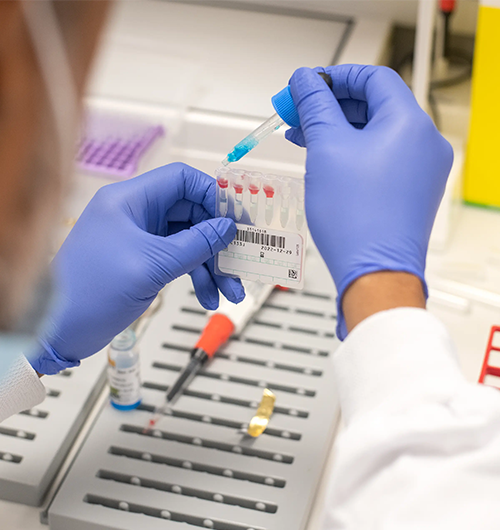Cardiology genetic testing examines an individual’s DNA to detect inherited mutations that increase the risk of heart diseases, such as hypertrophic cardiomyopathy, dilated cardiomyopathy, arrhythmias (like Long QT syndrome), and familial hypercholesterolemia. By identifying specific genetic variants, this test helps clinicians diagnose conditions that might not be apparent through standard exams or imaging. It is particularly useful for individuals with a family history of sudden cardiac death, unexplained heart failure, or early-onset heart disease. Results guide personalized treatment, risk stratification, and family screening, enabling targeted prevention and management to improve patient outcomes and reduce complications.
Cardiology genetic testing offers significant benefits by enabling early detection of inherited heart conditions that might not be evident through routine examinations. By identifying specific genetic mutations, it allows healthcare providers to tailor personalized treatment plans, improving patient outcomes. This testing is especially valuable for individuals with a family history of heart disease or sudden cardiac events, as it helps assess risks for relatives and guides preventive care. Utilizing advanced technology and expert genetic analysis, cardiology genetic testing provides accurate diagnoses and empowers patients and clinicians with crucial information to manage and reduce the risk of serious cardiac complications.





Cardiology genetic testing is recommended for individuals with a personal or family history of inherited heart conditions like cardiomyopathies, arrhythmias, or sudden cardiac death. It’s especially useful for those with unexplained heart issues, early-onset disease, or relatives with known genetic disorders. People planning a family or seeking insight into their heart health risks may also benefit. A cardiologist or genetic counselor can help assess if testing is appropriate.
You should consider this test if:

A cardiologist or genetic counselor reviews your personal and family medical history and discusses the purpose of the test.
You’ll provide written consent after understanding the benefits, risks, and possible outcomes of the test.
A small blood or saliva sample is collected in a lab or clinic for DNA extraction.
Advanced technologies like next-generation sequencing (NGS) are used to analyze genes associated with heart conditions.
Certified geneticists interpret the data to identify any variants linked to cardiac diseases.
Results are discussed with you, along with personalized recommendations for treatment, monitoring, or family screening.

 01
01
Our fully integrated E-Lab platform offers online test ordering, real-time tracking, and secure digital reporting bringing convenience and control to both physicians and patients across the country.
 02
02
From routine blood tests to complex genetic panels, we leverage cutting-edge platforms like NGS, PCR, and AI-powered analytics for maximum accuracy and clinical relevance.
 03
03
With lab facilities based in Florida, we ensure faster processing times and direct access to our expert team. You get timely results backed by responsive, local customer support.
At E-lab, we are dedicated to innovation, collaboration, and seamless growth.
